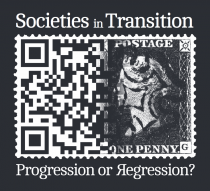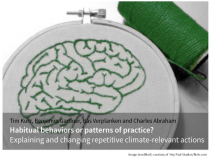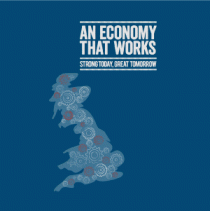- About
- Team
- Projects
- Children and the Environment
- ELiCiT (Exploring lifestyle changes in transition)
- Foundations for Sustainable Living
- HABITs
- Mapping Rebound Effects
- PASSAGE (Prosperity and Sustainability in the Green Economy)
- Policy Dialogue
- Price Responsiveness of Demand in Energy
- Resilience and Sustainable Lifestyles
- Sustainability Transitions in Food Systems
- Sustainable Living in Remote Rural Scotland
- Publications
- News
- Events
Children and the Environment
Project Team: Kate Burningham (University of Surrey), Linda Geßner, Bronwyn Hayward (University of Canterbury), Tim Jackson (University of Surrey), Sylvia Nissen (University of Canterbury), Sue Venn (University of Surrey)






The SLRG portfolio included a small amount of seed funding to scope the potential for a ‘flagship’ project on environmental attitudes and values amongst young people. The project drew inspiration from the long running Granada TV programme, Seven Up, tracking the lives of a cohort of children born in 1957, at seven year intervals. The intention of our project was to develop a similar study tracking changes in the environmental attitudes, values and behaviours of young people in a changing world. At the outset it was recognised that an undertaking of this kind lay well beyond the resources of the current funding, but that its value in tracking environmental values over time could be enormous and have a longevity well beyond the life of SLRG. Consequently, we allocated a limited amount of resources to scope the potential for such a project.
From the outset, two slightly different visions for the project emerged. The academic aim was to try and establish a long-term sequential cohort study, using mixed social research methods to develop the basis for an understanding of the behaviours, values and attitudes of young people towards the environment. Because of the inspiration from the Granada documentary, however, there was also the idea that we might develop something creative, which could engage a wider audience in the issues, much as Seven Up had done years earlier.
Following an initial scoping phase, we therefore pursued two parallel (but linked) streams of work. The first was to develop, in collaboration with the UNEP DTIE Sustainable Consumption Unit, the outline for a longitudinal cohort study entitled: Children and Youth in Cities - a Lifestyle Evaluation Study (CYCLES for Sustainability). The second was to work closely with an award-winning documentary film maker, Amanda Blue, to develop the pitch for a long form documentary.
CYCLES builds on UNEP’s groundbreaking Global Survey on Sustainable Lifestyles, published in 2011, which explored the views of 8,000 18-34 year olds in 16 nations across the world. In December 2012 an international advisory meeting of potential international research partners jointly hosted by SLRG and UNEP in Paris agreed to pursue a longitudinal cohort study of the sustainability of the lifestyles of 12-24 year olds growing up in 21 global cities. An SLRG team based at the University of Canterbury was contracted to prepare a literature review and coauthor a chapter in the ISSC State of the World 2013 report setting out the case for a global longitudinal mixed method study of sustainable youth consumption. In December 2013, SLRG and UNEP cohosted an international workshop to discuss research methods and research capacity building needs with 18 prospective international collaborators.

Funding was secured from UNEP, for SLRG and partners at University of Canterbury to prepare a phased, global mixed method cohort study of urban youth consumption with potential for replication over 20 years.
In parallel with the UNEP collaboration, the SLRG team has also worked closely over three years with the UK-based, award winning documentary film-maker Amanda Blue to plan a long form documentary on children and the environment. Following the December 2013 meeting in UNEP, it was decided to develop this documentary in association with the CYCLES project, thus bringing the two strands of the project back together. This is an exciting and important way to support a new, global public conversation about how cities can sustainably support the capabilities and aspirations of new generations, within the finite resources of the planet.
Related Links
Visit the UNEP Project Site here. For more information on this project proposal, please download the Draft Concept Note. Also, you can read Sustainable consumption and lifestyles? Children and youth in cities, in World Social Science Report 2013: Changing Global Environments, International Social Science Council/United Nations Educational, Scientific and Cultural Organization (2013).
Contact
For further enquiries, please contact Tim Jackson.













